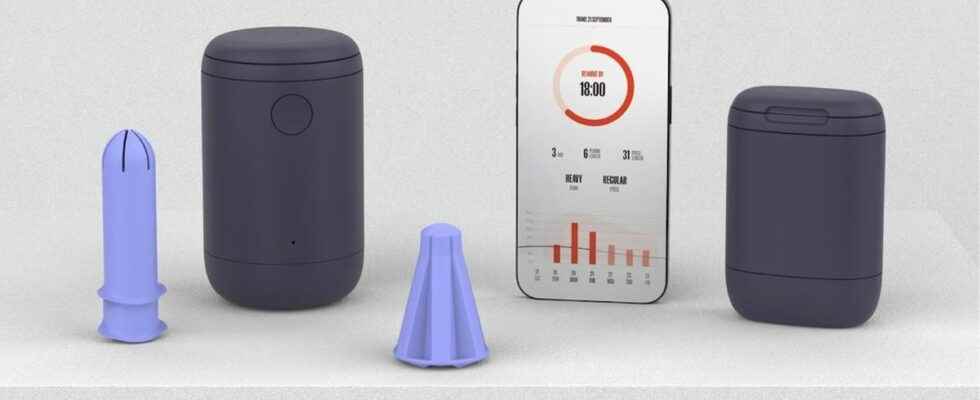Published on
Updated
Reading 2 mins.
in collaboration with
Dr Odile Bagot (Gynecologist-obstetrician)
Medical validation:
December 22, 2022
A smart stamp, anyone? Called “Emm”, this tool equipped with sensors would make it possible to detect various diseases: endometriosis, diabetes, cholesterol… and even ovarian cancer.
Good news for all menstruating women. A new smart tampon with biomarkers will soon be marketed in England. His main interest? It could detect the first signs of diabetes, cholesterol, gynecological diseases and even fertility problems.
Collected blood could yield valuable data
baptized umthis micro-umbrella-like tampon 2.0 would combine high-tech biosensors and a sophisticated mobile application.
According to its creator, Jenny Button – a 30-year-old Londoner – its sensors would not only warn the patient when the tampon needs to be emptied, but they would also record health data by measuring different biomarkers in the blood.
This data would then be sent to a wireless app to record the menstrual cycle and blood flow, while predicting the start of a new cycle.
According to Chris van Kempen, engineer in charge of the project, it is possible “to use this device to detect fertility problems, but also the first signs of polycystic ovaries, endometriosis or even ovarian cancer.”
The Emm pad should even eventually be able to detect the first signs of diabetes and cholesterol.
Sold at a price of 150 dollars (for a duration of three years), it will be delivered with its own handbag, its applicator and its sterilization system.
Without the advice of a doctor, the interpretation of the results is not possible
While technology is increasingly playing a key role in healthcare, for Dr. Bagot, gynecologist, this innovation has its limits.
“It is one thing to deliver information, another to interpret the results. Patients need a doctor to know how to decipher this data, which is similar to a blood test”, underlines the expert before specifying “A simple biological result does not make it possible to make a diagnosis. The profile of the person, his risk factors, his previous examinations, his age… Many elements must be taken into account to interpret the symptoms. It is therefore, in my opinion, a gadget why not useful as a screening tool, but certainly not as a diagnostic tool.”
